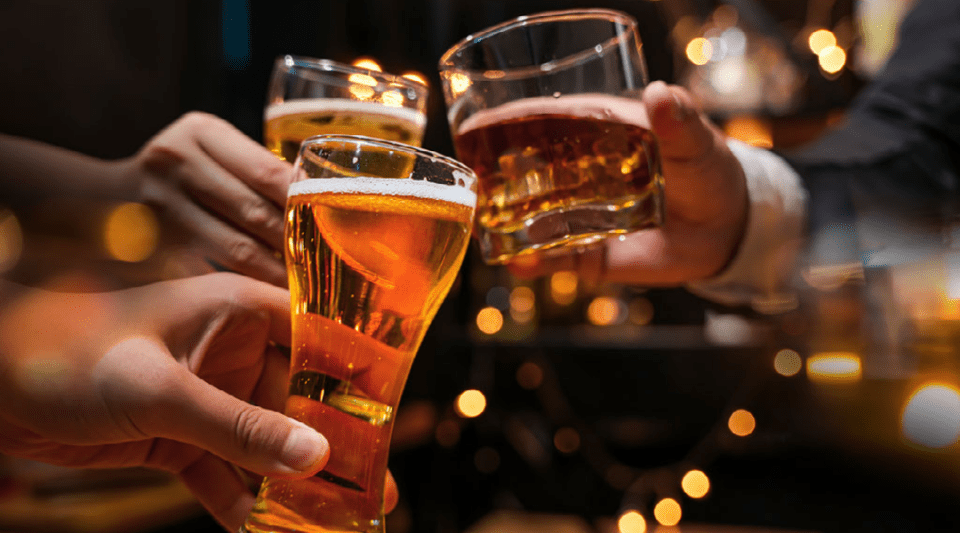A systematic review carried out by researchers from the Clínic-IDIBAPS observed that the desire to drink alcohol increases after the consumption of beverages with or without alcohol (up to 1.2% by volume of alcohol). This suggests that the consumption of these types of beverages could be negative for people with an alcohol use disorder, or who have a high-risk consumption pattern. However, the evidence to date is very scarce and more quality studies are needed to help determine the use of this type of beverage in patients with alcohol use disorder.
This review was coordinated by Dr Hugo López-Pelayo and Dr Elsa Caballeria of the Addictive Behaviours Unit at the Clínic Barcelona, members of the IDIBAPS Addiction research group. Studying and obtaining rigorous, high quality results on the consequences of non-alcoholic beverages in this type of population is essential for making clinical decisions and for public health policies.
Some of the observed results were that non-alcoholic beverages not only increase the desire for alcohol consumption, but that this need is greater the more severe the degree of dependence of the patient. It was also observed that non-alcoholic beverages with aromas or flavours similar to alcoholic beverages produce a physiological response similar to that of alcoholic drinks, despite not containing it. Additionally, consumption of these beverages increases when lower amounts of alcohol are declared on the label.
Non- or low-alcohol drinks are an increasingly popular alternative to traditional alcoholic beverages. However, it has been observed that consumption of these beverages in people with alcohol use disorder does not replace the consumption of alcoholic beverages, but rather adds to their regular consumption of alcohol. Despite this increase in the consumption of non-alcoholic beverages, there is insufficient evidence to demonstrate the benefits or risks of their use in people with alcohol use disorder or a high-risk drinking pattern.
Conducting high quality studies could help healthcare professionals, patients and other stakeholders gain new insights to make informed, evidence-based decisions. These decisions may also vary with the patient features and severity of the disorder or associated diseases.
The impact of alcohol on society
It is considered that around 10% of the population consumes alcohol on a daily basis and that more than 50% will meet the criteria for risky consumption, with a significant impact on their physical and mental health.
Low-risk alcohol consumption is considered to be no more than 2 standard drink units per day for men and 1 unit for women. These are equivalent to 2 x 200 mL glasses of beer or 2 glasses of wine a day if you are a man, or one 200 mL glass of beer or one glass of wine if you are a woman. High risk consumption is considered 4 drink units daily for men and 2.5 for women. In certain populations, such as adolescents, pregnant or breastfeeding women or people taking medication that is contraindicated for mixing with alcohol, any consumption is considered high risk. However, any consumption of alcohol involves a health risk.
Establishing evidence-based strategies for treating this type of disorder, while considering the risks and benefits of non-alcoholic beverages, is essential. This knowledge will help healthcare professionals, patients and public health policy.
Reference article:
Elsa Caballeria, Maria Teresa Pons-Cabrera, Mercedes Balcells-Oliveró, Fleur Braddick,Rebecca Gordon, Antoni Gual, Silvia Matrai and Hugo López-Pelayo. “Doctor, Can I Drink an Alcohol-Free Beer?” Low-Alcohol and Alcohol-Free Drinks in People with Heavy Drinking or Alcohol Use Disorders: Systematic Review of the Literature. Nutrients 2022, 14, 3925.
Information documented by:
Hugo López Pelayo. Psychiatrist. Addictive Behaviours Unit. Psychiatry and Psychology Service. Hospital Clínic Neurosciences Institute. Hospital Clínic de Barcelona. Addiction Research Group Coordinator. IDIBAPS.
Mercè Balcells Oliveró. Psychiatrist. Addictive Behaviours Unit Head. Psychiatry and Psychology Service. Hospital Clínic Neurosciences Institute. Hospital Clínic de Barcelona. Addiction Research Group. IDIBAPS.






